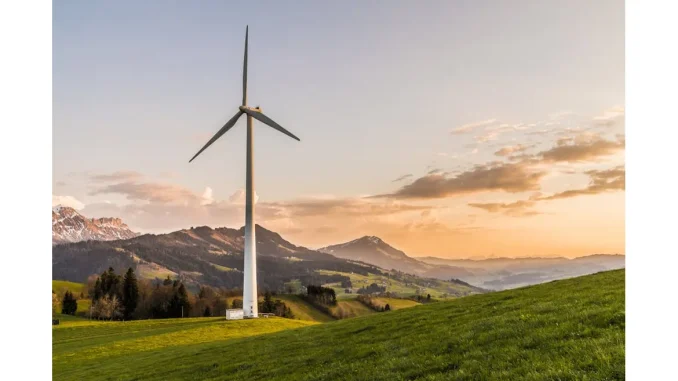
In the heart of the wood flooring industry, Junckers has distinguished itself as a paragon of quality and sustainability. This Danish company’s unwavering commitment to environmental responsibility is exemplified by its ISO 14001 certification, a globally recognised standard for environmental management systems. This certification is not merely an accolade; it symbolises Junckers’ pledge to uphold and exceed rigorous environmental standards.
“Achieving ISO 14001 certification is a testament to our dedication to environmental stewardship,” asserts Lars Kristensen, Junckers’ Environmental Manager. “It’s about more than compliance; it’s about setting new benchmarks for sustainability.”
At Junckers, the environmental management system encompasses far more than merely addressing the immediate environmental impacts of their production processes. The system integrates crucial areas such as the working environment and energy safety in electrical work, known within the company as SKS. This comprehensive approach ensures that every aspect of the company’s operations aligns with their overarching sustainability goals. Junckers has identified wood dust, wastewater, and noise as the most significant local environmental impacts emanating from their operations. In response, the company has invested in state-of-the-art facilities designed to purify air discharge and wastewater.
“We’ve made substantial investments in our purification systems,” explains Kristensen. “The advanced technology we employ has dramatically reduced our environmental footprint.” For instance, the installation of sophisticated air filtration systems has significantly minimised wood dust emissions, creating a cleaner and safer working environment. Similarly, cutting-edge wastewater treatment plants ensure that water is purified before it is discharged, thereby protecting local water bodies from contamination.
Junckers places a high priority on the continuous monitoring of their environmental performance. The company regularly assesses its environmental impacts as part of its commitment to adhering to environmental approvals. This ongoing monitoring not only helps them stay compliant with regulatory requirements but often enables them to exceed these standards. “Meeting regulatory standards is just the baseline for us,” emphasises Kristensen. “Our goal is to surpass them. Regular monitoring allows us to identify areas for improvement and take proactive measures.”
A critical component of Junckers’ environmental management system is the active involvement of its employees. The company conducts regular training sessions to educate employees about environmental practices and the importance of compliance. This ensures that every team member is fully aware of their role in maintaining Junckers’ environmental standards. “Environmental responsibility is a collective effort,” notes Kristensen. “Our employees are our greatest asset in this journey towards sustainability.”
ISO 14001 certification is increasingly becoming a benchmark for companies globally. For Junckers, this certification not only enhances their reputation but also sets them apart in a competitive market. By adopting such rigorous environmental standards, Junckers is contributing to a broader movement towards sustainable industrial practices. Moreover, the inclusion of the working environment and energy safety in their environmental management system underscores a holistic approach to sustainability. This integrated system ensures that all aspects of the company’s operations are environmentally sound and safe for employees.
Junckers’ investment in advanced purification systems highlights the critical role of technology in achieving environmental goals. The use of cutting-edge air filtration and wastewater treatment technologies has enabled Junckers to significantly reduce their environmental impact. This serves as a reminder that technological innovation is a key driver in the quest for sustainability. “We are constantly exploring new technologies and methods to improve our environmental performance,” says Kristensen. “Innovation is essential to our ongoing success in this area.”
As environmental regulations continue to evolve, companies like Junckers must stay ahead of the curve. Future developments may include further advancements in purification technologies, increased use of renewable energy sources, and more stringent monitoring of environmental impacts. “We are always looking for ways to improve,” says Kristensen. “The journey towards sustainability is ongoing, and we are committed to being leaders in this field.”
Looking ahead, the wood flooring industry may see a greater emphasis on sustainable practices, driven by consumer demand and regulatory pressures. Companies that adopt comprehensive environmental management systems like ISO 14001 will likely be at the forefront of this trend. Junckers’ certification according to ISO 14001 is a significant achievement that reflects their commitment to environmental responsibility. By continuously monitoring and improving their environmental performance, investing in advanced technologies, and involving employees in their sustainability efforts, Junckers is setting a high standard for the industry. This proactive approach not only benefits the environment but also positions Junckers as a leader in sustainable industrial practices.
Their journey towards a greener future is a compelling narrative of dedication, innovation, and collective effort. Junckers stands as a beacon for other companies, illustrating that environmental responsibility and industrial success can go hand in hand. As they continue to evolve and adapt, Junckers is poised to remain at the forefront of sustainable practices in the wood flooring industry, setting a benchmark for others to follow.


Be the first to comment